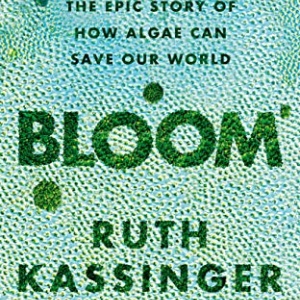
This book by Ruth Kassinger uses case studies to explore how algae could be used to produce food, fuel and packaging materials.
Publisher’s summary
Say 'algae' and most people think of pond scum. What they don't know is that without algae, none of us would exist.; There are as many algae on earth as stars in the universe, and they have been essential to life on our planet for aeons.
Algae created our oxygen-rich atmosphere, abundant oceans and coral reefs.
Crude oil is made of dead algae, and algae are the ancestors of all plants. Today, seaweed production is a multi-billion-dollar industry, with algae hard at work to make your sushi, beer, paint, toothpaste, shampoo and so much more.
Delving into science and history, in this revelatory book Ruth Kassinger takes readers on an around-the-world, behind-the-scenes, and into-the-kitchen tour.
We'll meet the algae innovators working towards a sustainable future: from seaweed farmers in South Korea, to scientists using it to clean the dead zones in our waterways, to the entrepreneurs fighting to bring algae fuel and plastics to market. Bloom will overturn everything you thought you knew about algae and the immense power that they hold.
This could be the future of our rapidly changing world.
Reference
Kassinger, R. (2019). Bloom: from food to fuel, the epic story of how algae can save our world. Elliott & Thompson Limited, London.
Read more here. See also the Foodsource building block What is land use and land use change? and the Research Library items Edible microorganisms to counteract agricultural expansion and Geothermal photobioreactor could produce animal feed.







Post a new comment »